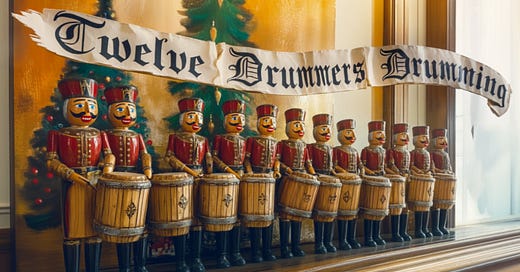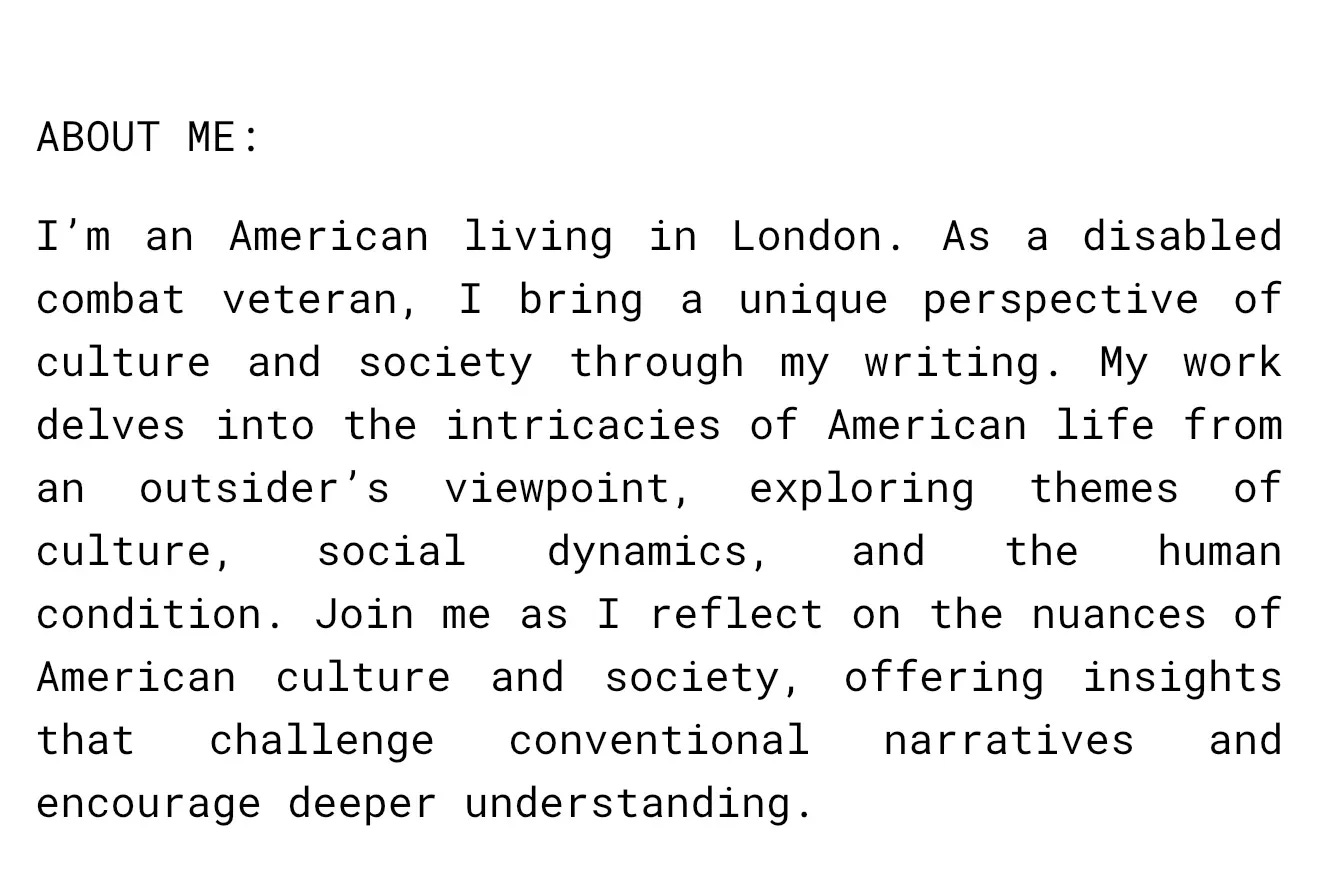Why the 12 Days of Christmas Still Matter: What Most Christians Get Wrong About the Holiday Season
The twelfth and final day of the Christmas season is upon us, and if it were not for the popular Christmas carol, “The Twelve Days of Christmas,” few would even know it, including some Christians. For most people, the season ends on the 25th of December, and the days after are filled with discarded wrapping paper, leftover food, and a tired return to everyday life. Decorations stay up, not out of celebration, but because people lack the energy to take them down after weeks of shopping, parties, and rushed schedules.
The focus on the secular holiday overshadows the spiritual meaning of the twelve days. Consumerism has redefined Christmas as a buildup to one grand day, leaving the days after forgotten. Even among Christians, Advent holds more attention than the Christmas season itself, which historically marks Christ’s birth and the journey of the Magi. The deeper meaning gets lost in the rush to move on, leaving this sacred time overlooked and misunderstood.
This neglect reflects a wider tendency to miss the deeper truths behind Christmas. The Christmas story is unlike anything we know. It is not a tale with ordinary beginnings or predictable endings. It strikes at the core of human understanding. It leaves us speechless, filled with awe. The Christmas story is terrifying, not because it fills us with fear, but because it exceeds what the human mind can imagine. It challenges us with answers to questions we have not even fully grasped. Answers so deep that they seem impossible to have come from a human mind.
This story stands far beyond the limits of our reasoning. It presents a reality so vast and eternal that we can hardly take it in. The Christmas story does not simply ask us to believe; it forces us to surrender our ideas of control. It invites us to embrace a truth that is much greater than ourselves. It reveals a God whose ways are higher than ours, and whose thoughts stretch beyond our comprehension. The Christmas story shows us God’s great rescue plan, a plan that began before time itself to save sinners from death. It is a story of salvation.
Unlike the myths and legends we have created, the Christmas story breaks all the molds. History is full of stories of kings and conquerors, those who ruled with force and violence. We hear of figures like Alexander the Great, who reshaped the world with military power, conquering nations and building empires. Even mythology offers its own gods, like Zeus, king of the gods, who ruled with mighty force, descending from Mount Olympus to impose his will. These stories tell us that power is shown in domination, force, and control.
The Christmas story turns these ideas upside down. Instead of a powerful king or a hero leading armies, it tells of a helpless baby born in a lowly manger, surrounded by animals and shepherds. This setting seems far removed from the glory of heaven, yet it is here that God chose to enter the world. This humble beginning forces us to rethink strength. True power does not always come through control or force. Sometimes, it is found in humility, in love, in the willingness to serve others.
The story’s roots stretch back to ancient promises. Long before Jesus was born, the prophet Isaiah spoke of a child to come: “For unto us a child is born, unto us a son is given: and the government shall be upon his shoulder: and his name shall be called Wonderful, Counsellor, The mighty God, The everlasting Father, The Prince of Peace” (Isaiah 9:6). These words remind us that Jesus’ birth was not a random event. It was part of a divine plan that had been in place before the world was formed. It shows us that God is not distant or indifferent. He has always been involved in the lives of His creation.
This rescue plan is beyond anything we could have imagined. The birth of Jesus marks the beginning of God’s greatest act of redemption. In sending His Son, God did not come to conquer with the sword, but to save through sacrifice. This sacrifice goes against what the world expects. People thought they would see a mighty king who would overthrow the powerful and set up a kingdom on earth. Instead, God sent a Savior who would conquer sin and death by laying down His own life.
The Church carries this message forward. The angels’ song to the shepherds—“Glory to God in the highest, and on earth peace, goodwill toward men” (Luke 2:14)—has become the Church’s cry. The message is not a song of praise. It is a statement of God’s purpose. The peace the angels spoke of is not the absence of conflict. It is the healing of a broken relationship between God and humanity. The goodwill they proclaimed is not something we can earn. It is a gift offered freely by God’s grace.
The Church, through its worship, teaching, and service, continues to carry the message of the Christmas story. It reminds us that salvation is not from our strength or efforts but from God alone. The Apostle Paul wrote, “But God commendeth his love toward us, in that, while we were yet sinners, Christ died for us” (Romans 5:8). This love, first shown in the birth of Jesus, reaches its full power in His death and resurrection. The manger and the cross are connected, pointing to the same truth: that Jesus came to save us.
The story of the wise men’s journey reflects the Church’s mission. These men came from distant lands, guided by a star, to worship the newborn King. Their journey fulfills the words of Psalm 72:11: “Yea, all kings shall fall down before him: all nations shall serve him.” The wise men represent the nations coming to Christ. The Christmas story is not for one group of people. It is a message of hope for everyone.
At the same time, the Christmas story remains deeply personal. It speaks to each person in their darkest moments. It brings comfort to the lonely, strength to the weak, and hope to the despairing. The manger reminds us that God meets us where we are. He does not wait for us to find our way to Him. He comes to us, bringing light into our darkness.
This light does not flicker and fade. It stands steady. The world we live in sometimes feels full of violence, hatred, and despair. Yet the Christmas story offers a way out. It proclaims that even in the middle of chaos, there is hope. Jesus came to bring peace, not through fear, but through healing. His birth marked the start of a journey that would lead to the ultimate act of love: His death on the cross. As the angel told Joseph, “Thou shalt call his name Jesus: for he shall save his people from their sins” (Matthew 1:21).
The simplicity of the Christmas story makes its message powerful. Anyone can grasp its meaning. A child can understand the wonder of the baby in the manger, and even the greatest minds cannot fully understand it. The story speaks to the human heart in a way that nothing else can. It shows us that God is near and that He is not indifferent to our suffering, but is willing to share it with us.
The Church celebrates this truth through its sacraments and community life. The bread and wine of the Lord’s Supper remind us that Jesus’ birth cannot be separated from His death. The infant in the manger is the same Christ who would later break bread with His disciples and say, “This is my body, which is broken for you.” The connection between the cradle and the cross deepens the meaning of Christmas, showing that the joy of His birth is inseparable from the sacrifice of His life.
The Christmas story is more than an event in history. It is a living truth that shapes the mission of the Church and the lives of those who hear it. It is not a story to remember but a truth to live by. The light that shone in Bethlehem still shines today, calling all who see it to follow its path. As John 1:5 says, “And the light shineth in darkness; and the darkness comprehended it not.” This light is the hope of the world, the promise of salvation to all who believe.
The Christmas story begins with God, and it ends with God. It starts with His eternal plan and ends with His eternal glory. It shows us that salvation is not about what we can do but about what God has already done. It is the story of a God who loved the world so much that He gave His only Son, that whoever believes in Him should not perish, but have everlasting life. In this dark and violent world, the Christmas story stands as a beacon of hope, reminding us that light has come, and the darkness cannot overcome it.
2023© ElbyJames CC BY-SA 4.0




This is the end of my Twelve Days of Christmas series. I only produced this series because I was ill during the [secular] Christmas season but I think next Christmas season I will make the complete season for each day.